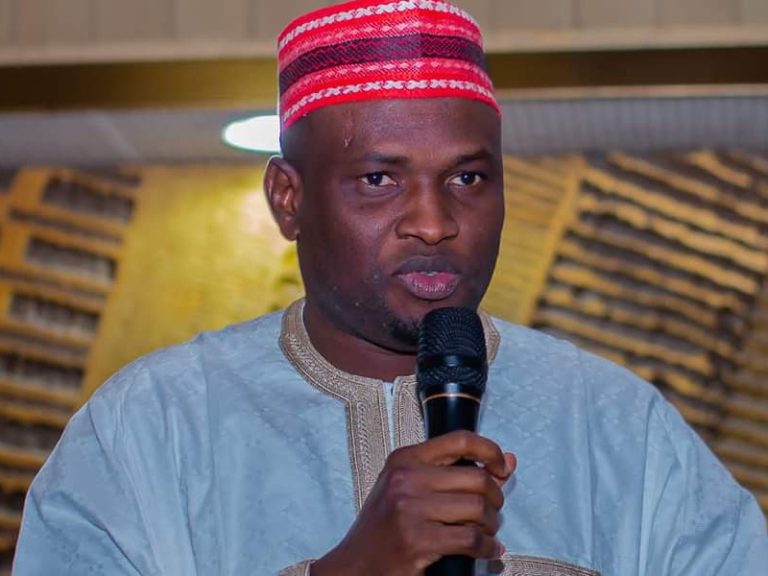
Screenshot
 It has been projected that Africa’s artificial intelligence (AI) market will surge from an estimated $4.5 billion in 2025 to nearly quadrupling to $16.5 billion by 2030.
It has been projected that Africa’s artificial intelligence (AI) market will surge from an estimated $4.5 billion in 2025 to nearly quadrupling to $16.5 billion by 2030.
This figure represents a whopping 27 per cent average annual growth. Repeated citation of these statistics has lent them a perceived credibility, regardless of their original accuracy.
The estimate was first made by MasterCard, in their report titled Harnessing the Transformative Power of AI in Africa, which they launched in August 2025. The prediction ignites both excitement and skepticism at the same time. Clearly, the figure highlighted in the report presents a massive economic opportunity.
However, making a colossal leap of the projected scale, in a space of only five years, looks unattainable.
Some analysts consider it to be realisable if African governments take the development of AI sector as a national priority; and invest in overcoming significant structural obstacles. Others simply dismiss it as another MasterCard informercial.
WHAT MAKES THE TARGET POSSIBLE
The realistic path to a $16.5 billion market is characterised by Africa’s unique strengths and urgent needs.
Firstly, the continent will benefit from its demographic dividend. It is home to the world’s youngest population, with a median age of around 19 and over 60 per cent of the population under 25.
This tech-savvy, digitally native youth is already driving adoption across all sectors, positioning them as both consumers and developers of AI solutions. Secondly, Africa is not approaching AI as a luxury.
The applications being designed and deployed are aimed at solving core, high-values socio-economic challenges. AI innovation is accelerating financial inclusion where AI-driven credit scoring is extending loans to more than 400 million unbanked customers, an intervention that represents a major catalyst for economic growth.
Precision agriculture solutions like AI- powered weather forecasting and soil analysis are boosting crop yields by as much as 30 per cent for smallholder farmers, enhancing food security.
In healthcare access, AI-based diagnostics and chatbots are expanding healthcare to millions in remote areas. Thirdly, Africa is demonstrating an entrepreneurial spirit. Kenya’s ‘silicon savannah,’ Nigeria’s 218 startups and emerging AI hubs in countries like Rwanda, Ghana, South Africa, Egypt, Tunisia and Morocco illustrate this spirit.
These countries are establishing themselves as regional leaders, attracting significant venture capital (VC). South Africa, for example, is projected to see its total AI investment reach $3.7 billion by 2030, supported by robust infrastructure.
WHY CAUTION IS NEEDED
It is arguable that the $16.5 billion projected figure reflects the best-case scenario. Achieving it requires that African nations collectively address several deep-seated challenges. Africa must urgently address glaring digital infrastructure gaps.
Internet penetration is still limited while high-speed internet connectivity is inconsistent. Moreover, access to reliable electricity is not guaranteed. AI requires high-performance computing (HPC) but Africa suffers from low data center capacity.
The continent holds less than one per cent of the global data storage capacity. This reliance on foreign servers is costly, slow and compromises data sovereignty. A critical gap exists between the demand for skilled AI professionals and the current supply, including AI engineers, data scientists and machine learning experts.
Without significant investment in university programs and local training initiatives, the continent risks being a consumer of AI rather than a developer. The challenge of data and policy presents mainly in two forms.
Firstly, through data fragmentation in which case the continent lacks high-quality, localised African data, leading to foreign-centric AI models that risk failing in local contexts.
Secondly, through a regulatory vacuum where the absence of consistent and clear policies on data privacy, ethics and algorithmic bias across the continent hinders large-scale, responsible deployment.
If the risk of exclusion is not well managed, AI could deepen the digital divide, concentrating economic benefits in well-connected capitals while marginalising rural and low-skilled populations.
VERDICT
Despite official declarations of commitment to advancing AI and the Fourth Industrial Revolution (4IR), Africa’s leadership has yet to demonstrate the urgency and bold initiative needed to accelerate the design, development and deployment of AI systems in a way that transforms the sector.
In regions like Europe, China and the United States, this commitment is expressed through the development of ambitious strategic visions backed up by substantial financial investments and the establishment of robust institutional and policy frameworks.
Africa, too, must pursue an active, deliberate and targeted deployment of local resources to overcome barriers that hinder widespread AI innovation and adoption. Therefore, for African governments, the immediate next steps are clear.
They must invest in local data centers, establish relevant university programmes, subsidise AI skills development programs for the youth, invest in research and innovation and establish robust, collaborative, pan-African governance frameworks to ensure AI is inclusive and responsible. Only then will the $16.5 billion opportunity for AI in Africa by 2030 be achieved.
The writer is a lawyer.



